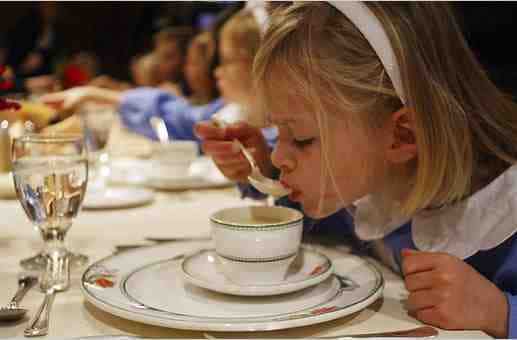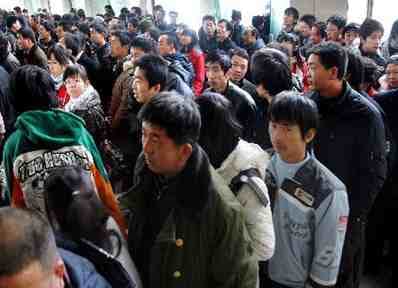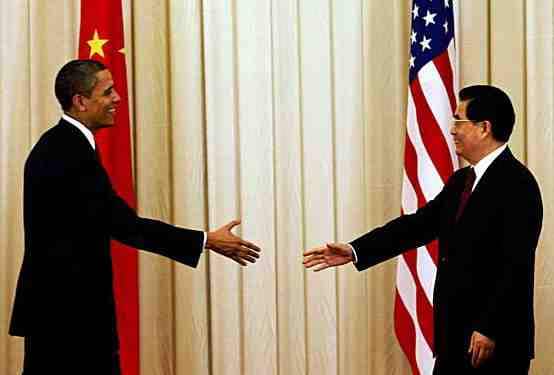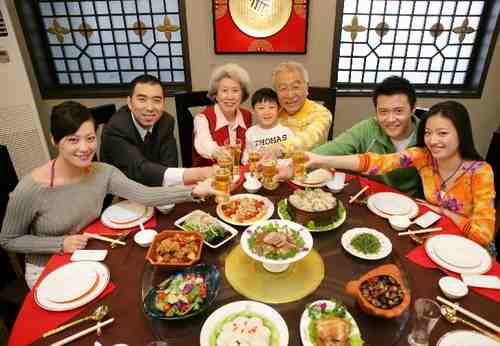To help with the culture shock that you may experience when traveling to China for the first time, we have gathered a vast amount of Chinese Manners & Etiquette Tips for Travelers; as well as some other things to keep in mind when visiting this fascinating country.
China is a very historical country that has established a name for itself when it comes to its very formal ceremonies and etiquette. However, it can be very overwhelming when it comes to the differences between the social niceties between the country and the western world. The following will hopefully help you get a feel for some of China’s manners and etiquette so you can apply them to your trip to China.
When traveling to China for the first time, you will find yourself feeling like you got splashed in the face by an ice-cold bucket of culture shock. Many travelers say they feel as if they have entered a Bizarro World where everything is upside-down. But remember, this is a country with a 5,000-year history that developed completely independently of Western civilization.

The good news is that the Chinese give laowai (foreigners) a lot of leeway when it comes to etiquette. It is expected of foreigners to be clueless to their customs so any possible offenses will be overlooked. Having said that, I hope this information will help you be a good guest in China and will help you keep your cool when you’re tempted to go ballistic on the guy who just cut in front of you in line.
Dr. Jekyll & Mr. Hyde: A Double Standard?
To start off, it’s important to remember that the Chinese culture uses a double standard when applying etiquette rules. They see the world in terms of their circle of personal and business relationships….and everyone else. In other words, it’s as if their rules of etiquette don’t apply when dealing with strangers on the street .

This helps explains the seeming “Dr. Jekyll and Mr. Hyde” contradiction that many foreigners have of the Chinese. One minute the exceedingly gracious Chinese host insists on walking them to the bus station…
…and the next minute, a pushy stranger has elbowed them out of the way (without even offering a non-verbal “sorry”).
This might seem uncivilized or odd. It’s hard to understand the cultural roots of this behavior but part of it has to do with the Confucian worldview, which is deeply embedded in societal relations.
Another factor to keep in mind is that China’s history — both long-term and as recently as a generation ago — has largely been one of survival of the fittest. In the face of famines, wars, floods, and other countless hardships, families learned to survive by sticking together…which also meant being indifferent to the suffering of the desperate, anonymous masses.
Add the recent Cultural Revolution — which violently broke down centuries of social norms and effectively tossed all rules of etiquette out the window — and you’ll start to understand the roots of this Mad Max-like code of street conduct.
Personal Space and Privacy
The Chinese culture is naturally crowded and the people are used to living together in tight quarters, thus the Chinese comfort zone of personal space is much tighter than those of Westerners (especially Americans who are accustomed to wide open spaces!).

Likewise, there’s almost no concept of personal privacy, especially same-gender privacy. In some older public toilets (such as what you might expect to find with China toilets), you might see partitions so low that you can have a friendly chat with your neighbor while squatting. Some of my Taiwanese female friends — unaccustomed to the lack of privacy in China — told me that they used their umbrellas in the toilet to afford them a bit more discretion.
But, the Chinese are not comfortable with physical contact, so refrain from any back-slapping or arm-touching (and certainly wedgies are strictly off-limits). The exception is with close same-sex friends: You might see women walking arm-in-arm or holding hands or a guy with his arm draped around his buddy (in a non-Brokeback Mountain kind of way).
But, the Chinese are not comfortable with physical contact, so refrain from any back-slapping or arm-touching (and certainly wedgies are strictly off-limits). The exception is with close same-sex friends: You might see women walking arm-in-arm or holding hands or a guy with his arm draped around his buddy (in a non-Brokeback Mountain kind of way).
Chinese Etiquette: Meeting & Greeting
These days, there’s plenty of exposure to the ways of the West (via pirated Hollywood DVDs mostly) and most people will be ready for a handshake from a laowai. They might even be proactive in offering one first.
But it’s best to avoid hugs, especially different-gender hugs (although I’m sure plenty of Chinese men wouldn’t mind one from a hot Western woman).

Also, when being introduced to someone, stand up and remain standing for awhile until you are seated.
In China, seniority matters: the oldest person gets the most respect so address them first when first meeting (or saying goodbye). Respect matters in a culture where saving “face” is important.
If you’re not sure how to address someone, just ask. Among the Chinese, they’re fairly formal and usually stick with surnames, unless dealing with close friends. Chinese surnames are usually one syllable and come before their given names.
But these days, many Chinese — especially younger ones and those in tourism — have adopted an English name to make life easier for everyone (“Wong? Which Wong you want?”).
But why not try to learn a little Chinese before you go anyway? There are plenty of free online Chinese classes you can take to improve your language skills even if you don’t have the time to study full-time.
Chinese Etiquette: Awkward Questions
Just a short note on conversational topics: Don’t be surprised (or offended) if conversation suddenly turns to topics that you feel are too personal.
For instance, westerners are often surprised and offended by comments about their personal appearance regarding such topics as their weight or the size of their nose.
Similarly, don’t be surprised if you’re asked questions about how much money you make, why you aren’t married, and why you don’t have kids. In China, these types of nosy (pun intended) questions aren’t considered rude, so try not to be offended.
For your part, you should avoid making any perceived criticism about China (even against the government). I’ve found that most Chinese have pretty thin skin when foreigners (especially Westerners) make comments comparing China with their own countries.
During the course of making some chit-chat, I’ve made some–what I thought to be innocent–observations or jokes about my travels in China that didn’t go over that well. If they’re offended, it’s more subtle–don’t expect an argument or even a rebuttal. However, you might instead be met with some stony silence (until you backpedal and start dissing your own country!).
Chinese Etiquette: Going Out
You might have an opportunity to make some new Chinese friends and find yourself invited to a meal (at a restaurant usually as opposed to someone’s home).
In China, restaurant bills are never shared. The person hosting orders all of the dishes (which are shared by the table) and paid for by the person hosting. It’s okay to make a token effort to grab the bill but you’ll embarrass them if you do end up actually chipping in some cash. Most likely, you won’t even realize that they slipped away at the end of the meal and paid the check.
This tip might be obvious, but if you’re invited into someone’s home, take your shoes off. They’ll give you a pair of slippers (which will likely be 3 sizes too small for your gargantuan laowai feet).
The Etiquette of Eating in China
Food. This is where the cultural differences really begin to show. To the average Westerner eating out in China, it seems that there are no rules governing table manners. The guy next to me is slurping his noodles in Dolby THX surround sound. And that dude is chewing with his mouth full…while screaming into his cell phone. And it’s okay to emit ear-shattering burps that register on the Richter scale?

But Chinese table manners do exist…they’re just not as evident to the Western eye. Here are some thoughts & tips to remember if you are invited out:
- Wait for your host to tell you where to sit. Especially in more formal events, age and seniority are important in seating arrangements. The “most honored” guest will usually be seated to the right of the host, facing the door.
- Probably the biggest faux pas you can make at the table is to stick your chopsticks straight up in your rice (bad luck because it resembles incense stick offerings to the dead).
- Also, don’t lick your chopsticks (or anyone else’s!). And don’t use them to gesture or point at someone. Drumming your chopsticks on your bowl is another no-no (only beggars do it). Finally, use communal chopsticks, if provided, to take portions onto your dish. If you’re chopsticks-challenged, it’s okay to ask for silverware (or better yet, travel with your own).
- Don’t be surprised if your host puts some food on your plate (a way of honoring you with the choicest morsels).
- It’s polite to sample at least a little of everything. The host will often wait for guests to grab something from a dish before they dig in. Don’t forget to pepper in some comments about how tasty everything is.
- Feel free to bring your bowl up to your mouth, slurp or even burp loudly if you’re so inclined. Live a little!
- A random fish tip: Don’t flip over a fish to get to the meat on the other side. In the fishing villages of ancient China, this meant that someone’s boat would be overturned but today it’s just another “bad luck” superstition (China has a lot of superstitions).
- Formal banquets (e.g. wedding or business meeting) tend to have a marathon number of dishes so pace yourself.
- Don’t leave an empty plate at the end of the meal. Otherwise, your host loses face (“Oh no! I didn’t order enough food!”). Similarly, don’t polish off the last remaining bits of food on any of shared dishes. But also don’t leave too much leftover either because it indicates that the food wasn’t good.
- When using a toothpick, use your free hand to cover your mouth.
Chinese Etiquette: Drinking
Like in Western cultures, alcohol is a big part of the dining experience. I personally think that China — like many Asian cultures — goes a bit overboard.
There’s an almost college mentality at work: The more your guests drink, the better (and if they don’t want to, we’ll gang peer pressure them!). I think a big reason is that Asian cultures tend to be less expressive and more formal–getting wasted with your new friend is not only a bonding experience, but is the only way that some feel comfortable enough to let their hair down and just relax.
Wait for the host to make the first toast before drinking. However, you should pace yourself, because afterwards, everyone takes turns making toasts (a seemingly never-ending round of toasts). You’ll notice that every time your glass is getting close to being empty, someone will have already filled it up.
It’s also considered rude to not raise your glass and join in a toast. The result is that you can find yourself completely bombed quickly. If you’re not a big drinker or not in the mood, you can claim that you’re allergic to alcohol (if anyone can empathize, it’s the red-faced Asians). But join in the toasts by raising your tea or water cup.
Be forewarned that if you’re talked into a first alcoholic drink (“C’mon, just one!”), you can be sure it’ll be followed by more peer pressure than a fraternity pledge week (and also complete with drinking games). There was a case that made headlines some years back about a low-level government official who attended too many of these drunken banquets and literally drank himself to death.
To avoid getting totally plastered, use an old Chinese trick: Just take tiny sips or pretend to drink by raising your glass to your closed lips (I don’t think that trick would’ve worked in college with beer bongs though).
Chinese Etiquette: Giving Gifts
Though not entirely expected, it’s a good idea to bring your host a gift. A few tips:

- Give and receive gifts with both hands (same goes for business cards).
- Whether you’re giving or receiving a gift, keep in mind that it’s considered rude to open a gift in front of the giver.
- If you have time to wrap your present, red or pink are best colors. White (the color of funerals) is a bad choice.
- Good gift ideas: bottle of imported booze, tea or foods (they love fancy gift baskets). Or toys or sweets if they have kids. There are plenty of other gift ideas for Chinese people that you can consider.
- The Chinese, like almost all Asian cultures, have many deeply rooted superstitions. DON’T give: clocks, cut flowers, umbrellas, or cutting implements. The number “4” (which sounds like the word for death) is also unlucky. On the other hand, “8” is considered lucky (it’s no coincidence that the Olympic opening ceremony was on August, 8, 2008).
Final Thoughts: Chinese Etiquette for Travelers
As mentioned earlier, the Chinese are very forgiving about the etiquette of foreign travelers visiting the country. It’s more likely that you’ll be offended by something the Chinese do than for you to offend them.
That being said, it always helps to know the culture you’re about to enter and to show the appropriate respect. It will make your time in China that much better!












